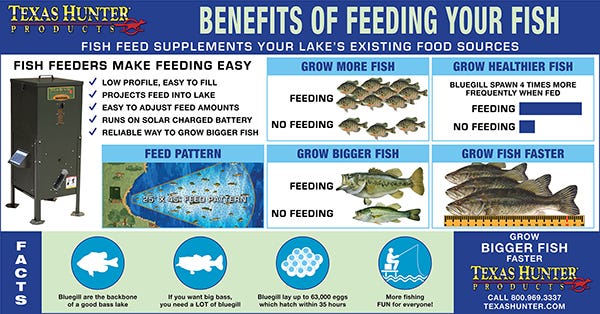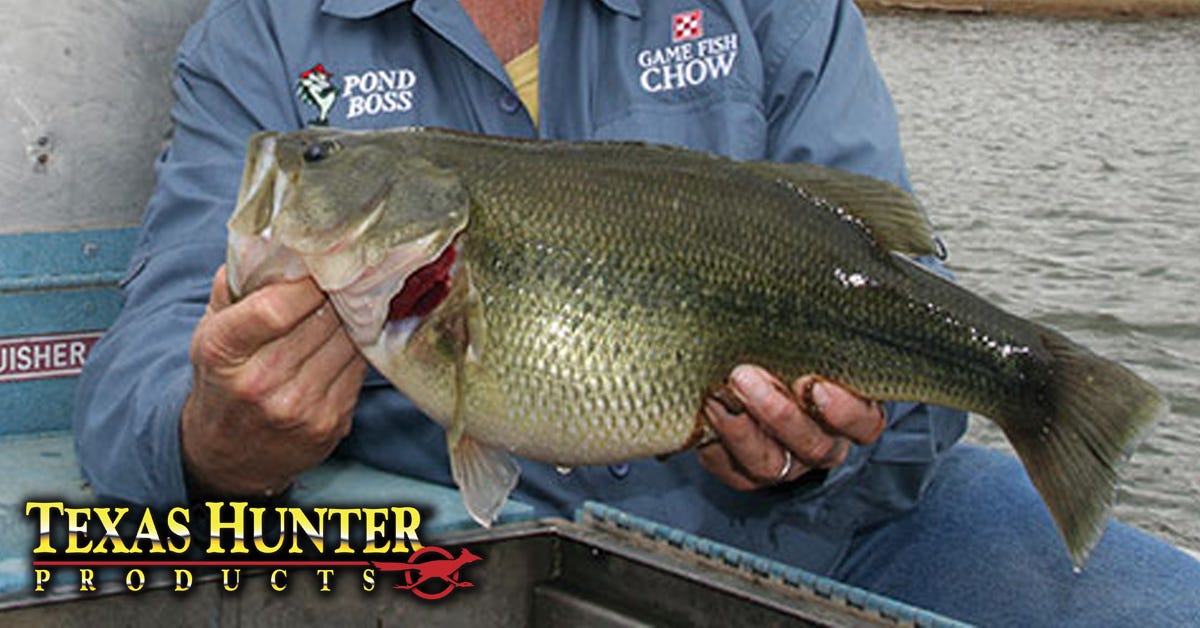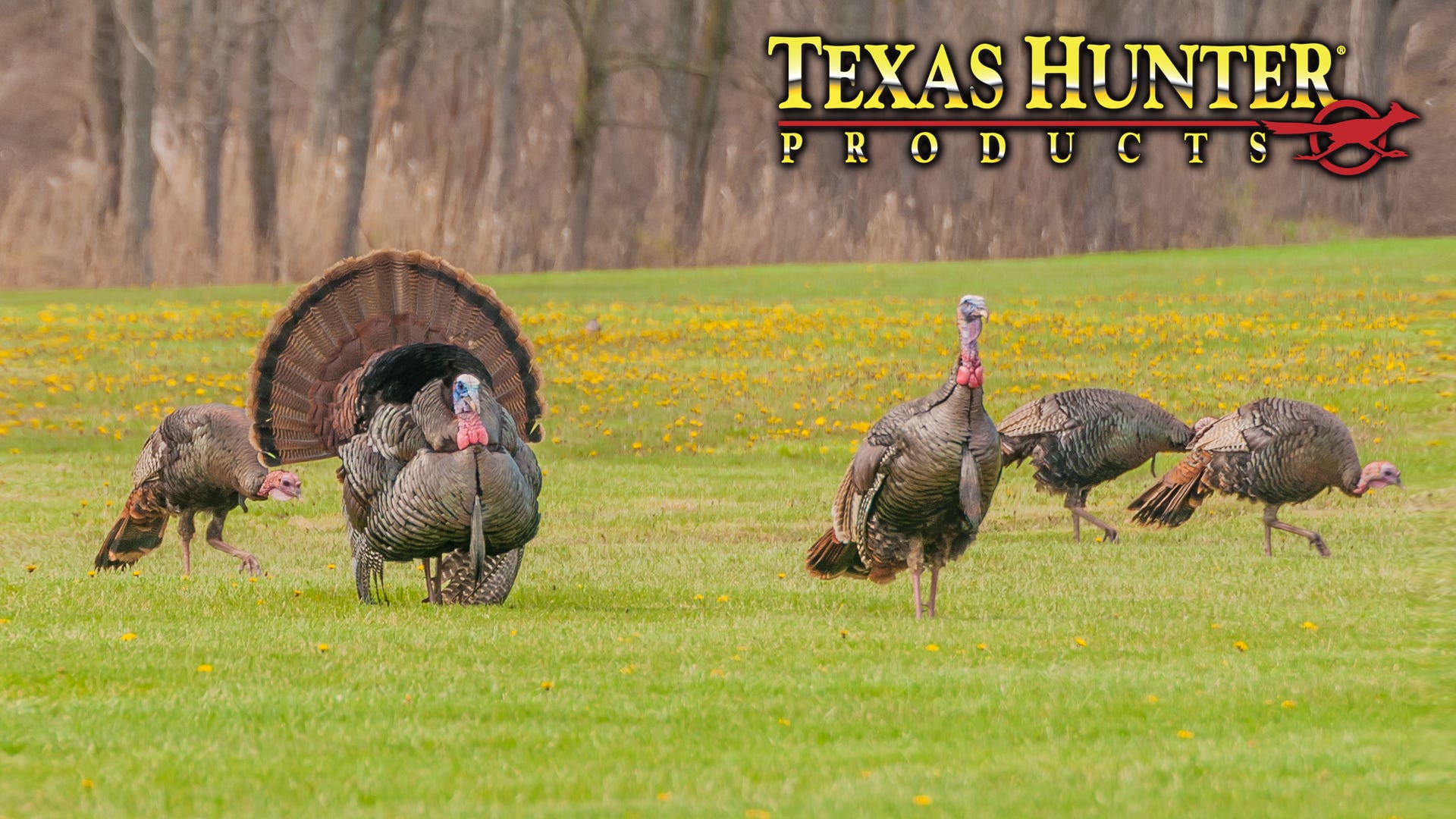- Jan 17, 2024
Tips for Cold Weather Bass Fishing Success
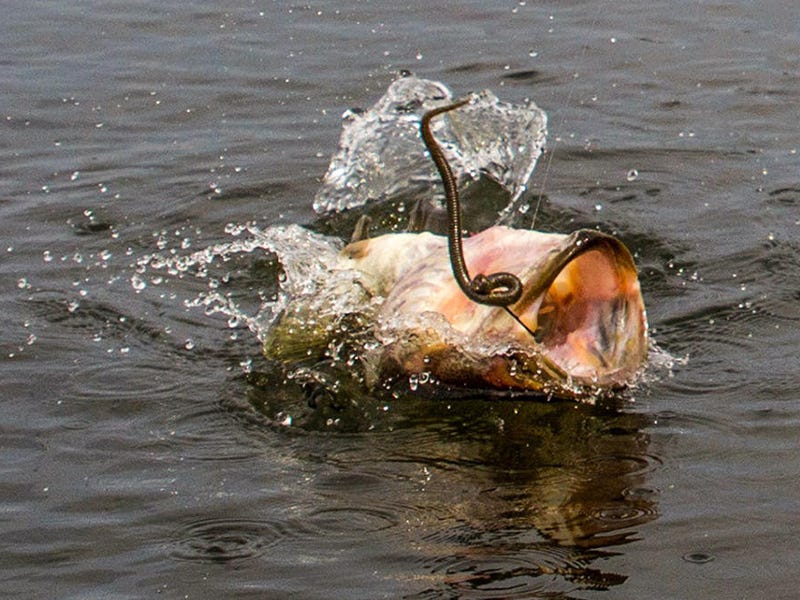
Winter bass fishing can be challenging and, at times, frustrating. The lower water temperatures often result in lethargic fish, demanding increased time and effort for successful catches. Nevertheless, for anglers dedicated to continual improvement, winter bass fishing presents an excellent opportunity to enhance skills. It encourages a focus on entirely different locations, techniques, and patterns compared to other seasons, providing a valuable challenge and a chance to diversify your expertise as an angler.
1. LOCATE ROCKS AND VERTICAL STRUCTURE
While winter bass fishing on a natural lake, it's crucial not to underestimate the significance of rocks and vertical structures near deep drop-offs. A key tip to keep in mind is that bass frequently move vertically in the water column during winter. Therefore, locating vertical structures such as dock pilings or a steep-sided creek channel in proximity to deep water becomes a critical element in establishing a dependable winter fishing pattern.
2. FIND THE WARMEST WATER
When gearing up for winter bass fishing on a windy day, it's wise to seek out spots with the warmest water temperatures. Even a slight temperature difference can impact the activity of fish. This may involve identifying the calmest waters on a lake, considering that wind can lower water temperatures. Additionally, exploring shallow areas that warm up later in the afternoon after a morning of bright, sunny conditions can be fruitful. Keep an eye out for areas with dark mud or clay bottoms, as they tend to retain more heat on days with abundant sunlight.
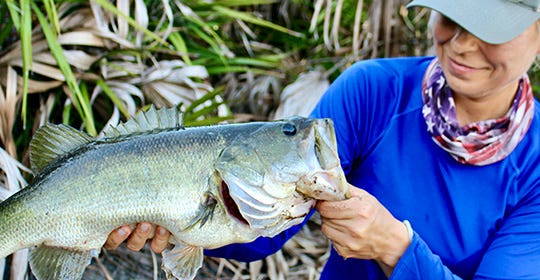
3. SLOW DOWN YOUR RETRIEVE
Work your winter bass fishing lures with a slow and steady retrieve, as bass tend to move more slowly in cold weather. When the water temperature falls below the preferred feeding range for bass, they are less likely to expend energy chasing down fast-moving baits or lures. Instead, they are more inclined to an opportunistic feed on subtle presentations that demand minimal effort. Precise casts that position baits and lures close to where the fish are holding will further increase your chances of getting more bites.
4. DOWNSIZE YOUR LURES AND BAITS
The best winter bass fishing lures typically involve small profiles and baits with subtle action. Consider using soft plastic worms, hair jigs, curly tail grubs, suspending jerkbaits, Ned rigs, and shakyhead jigs during winter. Downsizing your lures is key during this season. Additionally, opt for natural colors, especially when fishing in clear water, as they can be more effective in enticing bites. These lure choices and adjustments are well-suited for the slower and more cautious feeding behavior of bass in colder temperatures.
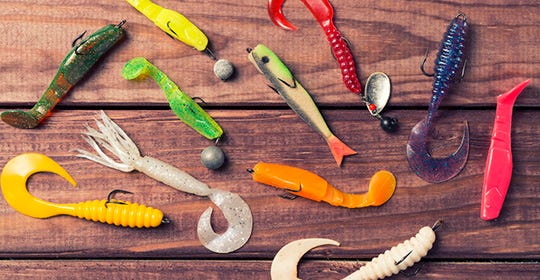
5. WHERE TO FISH IN LOW-LIGHT CONDITIONS
When nighttime winter bass fishing or fishing at dusk in winter, it's beneficial to target permanent light sources whenever possible. This could involve focusing on areas around docks, bridges, or piers with lights. These light sources often attract baitfish, and bass tend to linger in the shadow lines just outside the edges of the light, anticipating an easy meal. If you choose to fish at night during winter (or any time), prioritize safety by taking extra precautions. Layer your clothing to stay warm, and make sure to bring along flashlights and headlamps to enhance visibility in the dark.
Give these winter bass fishing tips a try as they can push you beyond your comfort zone, encouraging the use of different baits and lures compared to your typical presentations. By strategically considering where the fish might be holding in cooler water temperatures, you increase the likelihood of better catch rates and improved results. Embracing these suggestions can add a new dimension to your winter bass fishing experience and contribute to your growth as an angler.
##
Maintain the health of the fish in your pond or lake with Texas Hunter Fish Feeders. With multiple sizes to choose from, we have a solution for every size of lake or pond. Feeding your fish through the Winter will enhance your fishing experience come Spring!


